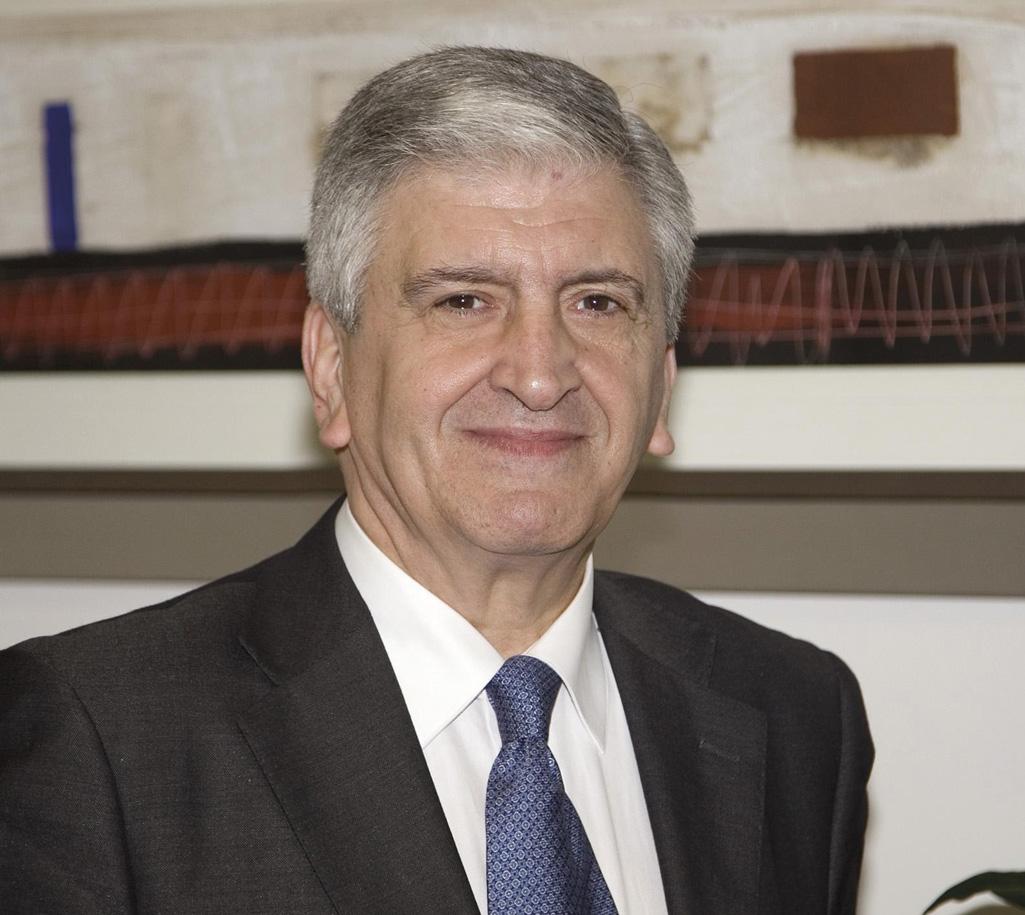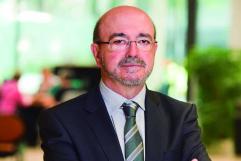
"Private home care has been essential"
The ASISA Group has played a determining role to contain the disease. The CEO of the healthcare company analyses the action of the care network.
Looking back, what do you consider was the greatest mistake made during the crisis caused by Covid-19?
This crisis has had some unique characteristics. The first of these is that it is a global crisis that has affected the entire planet, although unequally, and from the start there has been a clear shortage of information, amongst other reasons, due to the fact that it is a new, unknown virus. In the case of Europe, added to this is a lack of preparation and recent experience with similar epidemics. Whilst a few years ago, Asian countries managed the SARS or the H5N1 crises, Europe had not faced up to a great pandemic for almost a century. This lack of training, along with the lack of knowledge about the SARS-CoV-2, explains a large part of the initial chaos, the tentative response given by virtually all the countries and the mistakes in prevention and early detection of the epidemic that obviously were committed. We must re-read Laura Spinney’s book “The Pale Rider”, about the 1918 pandemic to rediscover the significance of the tragedy of the falsely named “Spanish flu”. It is not easy to be prepared for such a situation.
And the best achievement used to reverse the serious situation?
The collaboration has been good. Regarding the achievements, the social distancing steps, which have been very strict, have been highly effective from the healthcare point of view. The research effort is allowing us to move forward very quickly in our knowledge about the virus and in the development of treatments and, in the medium term, a vaccine. Furthermore, in the Spanish case, although the pandemic has shown shortcomings and weaknesses, it has also shown the capacity of the healthcare system to face up to crisis situations, using all the resources available in the response, both public and private. And it has demonstrated the commitment of the private healthcare groups with Spanish society. For us, the greatest achievement has been understanding that the public/private collaboration is a necessary value to face up to the challenges of the Spanish National Health System.
How has your health cooperative acted with respect to other private healthcare organisations? In what aspects was it different?
The ASISA Group has played a double role in this crisis. On the one hand, our health insurance company has given cover to its policyholders and has managed the care for those who have needed to be admitted to hospital for COVID-19, both in our own care network and in the associated centres, and the rest of the health insurance sector. But additionally, the HLA Group has attended over 9,000 people suffering from COVID-19 in its hospitals. This has been possible due to the cooperative policy that every year uses the results from the insurance company to improve and increase its care mechanism. I would also like to underscore an initiative that we have started up and that is unique in Spanish private healthcare, which was home care, an essential element when facing a pandemic of this kind.
What has ASISA Group’s response to this healthcare crisis been?
From the very first moment, the ASISA Group has worked in a coordinated way with the healthcare authorities and we have placed all our care mechanisms at their disposal, including our 15 hospitals, all over the country. Since the beginning of the crisis, the ASISA Group has attended over 11,300 patients suffering from COVID-19 (over 9,300 in our hospitals and over 2,000 in home care monitoring). Almost 2,000 were admitted to hospital and the large majority have already recovered. ASISA has covered hospital admittance for COVID-19 for over 3,400 policyholders, both in its own network and in associated centres. Therefore, our group has been on the front line fighting the pandemic and it has helped to save thousands of lives. All of this is due to the distinction of the professionals who form part of the AISA Group, and whose work, commitment and vocation to serve, giving the best of themselves in a truly complicated situation I would like to praise.
How would you evaluate the collaboration between public and private healthcare to face up to the healthcare emergency? Was it effective?
Private healthcare has been at the disposal of the healthcare authorities from the very beginning and we have worked alongside the public sector in a coordinated, highly effective way. In fact, the contribution of private healthcare has been essential to overcome the crisis and to save thousands of lives. Around 20% of those affected by COVID-19 were attended in private hospitals, which prevented the collapse of the public healthcare system. Additionally, the health insurers have waived the pandemic clauses included in the conditions of our policies and we have covered all the policyholders who have needed it. Therefore, private healthcare as a whole, has risen to the challenge and this contribution has been essential to slow down the pandemic and promote the progressive return to normality of the healthcare system. In fact, it is one of the lessons that the emergency has taught us: global responses to large-scale healthcare crises, such as the one we are living through, demand the coordinated response of the country’s entire healthcare mechanisms, public and private, because they all make up the healthcare system.
Healthcare personnel have been one of the groups most affected by the crisis. How would you evaluate their action and response?
The work the healthcare professionals have carried out during this crisis is commendable and praiseworthy. Regrettably, above all in the first weeks of the emergency, they had to face up to the disease with little means of protection, which often was inadequate. We must learn this lesson in order to ensure that it is not repeated in the future. In spite of these shortages, their work and commitment have been essential to save thousands of lives. Spanish society has known how to acknowledge this for many weeks with daily applause that summarised the gratitude felt by millions of citizens regarding the role of their healthcare professionals.
As CEO of an insurance company with an important care network, what would you have done differently?
We must use this crisis as a learning curve, both practical and theoretical, to face up to the future. Therefore, we are already reflecting on the things we got right and the mistakes that we have committed in our internal management and how to overcome them. For example, we are reflecting on how to improve our relations with the international healthcare material markets, a field where we have some deficiencies and that has been shown to be essential. Or how to improve our early warning systems in order to get ahead in similar scenarios.
What have we learnt from this crisis and what challenges do you think we will have to tackle in the future?
The crisis has given us some essential lessons about how to be more efficient in the future in new healthcare emergencies. In the case of our National Health System, we must analyse the shortcomings that the crisis has shown and that basically centre on organisational aspects. Our system, as any decentralised model, is very efficient in every-day healthcare management, but it suffers when faced with important public health crises that need high levels of state coordination. Therefore, we must move forward in a more solid prevention and planning strategy: all countries must have plans designed to tackle great challenges. One of these would be the management of healthcare crises of great significance, so that they could be deployed, with the correct anticipation and up-dating, at the speed required by the situation. We must not wait to design our plans of action until the complicated situation appears. The Public Health departments must be strengthened, permanently.
Furthermore, it is essential to rely on strategic reserves of healthcare material and with a national industry that allows our care mechanisms to be scaled up quickly when faced by a crisis situation, without having to depend on international markets. This requires planning, funding and a much greater commitment to research and technological development in the healthcare sector.
In third place, strengthening our warning, detection and fast response system in situations of healthcare emergency and public health crises, using the development of coordination tools between the different administrations; specific training of the fast response units with correctly trained professionals that are endowed with the suitable resources and by the network of experts that has the means and capacities to warn and coordinate all the care mechanisms available without worrying whether they are public or private.
Will we be prepared for a possible new outbreak?
At the moment we have taken some important steps that make us better prepared to face up to a new outbreak. On the one hand, we know the virus better, the way it infects and spreads; the effects it causes and how to handle them. Furthermore, we have a reserve of protective equipment and diagnosis tests that we didn’t have at the start of the pandemic and we have detection, monitoring and action systems for any outbreak that occurs. We have also moved forward in the social distancing and personal hygiene steps to minimise contagion. Finally, the care network, both public and private, has protocols for fast reaction when faced with a new outbreak and to adapt the activity to the care of patients with COVID-19. In the case of the HLA Group, we have plans to convert our hospitals into exclusive centres for treating this disease in 72 hours. But, the most important point is the response capacity accredited by most of the population, who have known how to obey the instructions and is ready to maintain the steps that make the fight against the pandemic effective.
How do you foresee healthcare in the future? Will some of the changes caused by Covid-19 stay forever?
The crisis we are experiencing has speeded up some changes in healthcare that were already there, but that have been developed much faster, driven forward by the situation. Perhaps the most relevant change has been the development of telemedicine. Most of the companies had tools to care for patients remotely, but the scope and cover has expanded over these months very fast. This situation has allowed many patients access to their specialists at a distance, with a highly satisfactory experience. Telemedicine has become integrated into the other services that we offer, as a supplementary alternative to in person care, which for us is the basis of medicine: nothing can replace the direct contact without intermediaries between a doctor and a patient.


